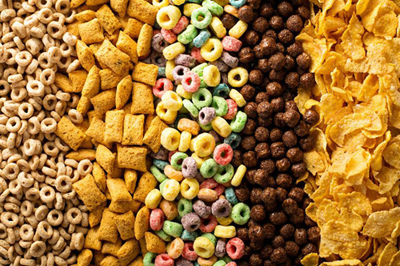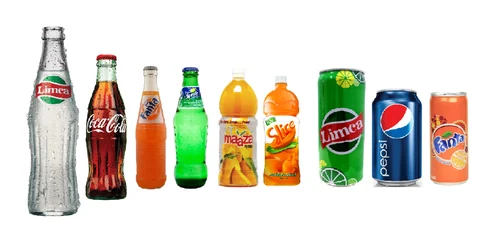Candy

Candy bars rarely cause breakouts. This sugary habit might damage skin if you celebrate Halloween every week.
This is due to the fact that eating candy can produce an increase in blood sugar. And when this happens, your body produces more insulin-like growth factor 1 (IGF-1), which activates your oil glands, according to Dr. Zeichner.
The problem is that when your oil glands go into overdrive, you become more prone to pimples.
Milk

“Milk and dairy products also stimulate the release of the hormone IGF-1,” explain Mandolfo and Hagar. This may explain why dairy causes acne in certain people.
“We’re not sure why it doesn’t affect everyone,” they explain, “but research appears to conclude that specific dairy products (such as skim milk versus plain yogurt, for example) are bigger acne triggers than others.”
Indeed, “cow’s milk, particularly skim milk, is associated with acne breakouts,” according to Dr. Zeichner. However, the mechanism of causation is still being debated. “It’s unclear whether this is due to hormones transferred to milk from lactating cows or to the high sugar level found in skim milk.”
Adding to the dairy conundrum, many people have moderate allergies and dietary sensitivities to milk and dairy products, according to Mandolfo and Hagar. These can aggravate skin problems including eczema and psoriasis.
Red Meat

While red meat is abundant in protein and iron, it is also high in saturated fat, according to Dr. Zeichner. Excess saturated fat not only contributes to excessive cholesterol, but it can also cause skin problems.
According to Mandolfo and Hagar, “high amounts of saturated fats are thought to increase the production of IGF-1 and thus promote inflammation.” And, as we all know, inflammation causes skin problems like acne, eczema, and psoriasis.
Sugary Cereals

While cereal is sometimes advertised as a “healthy” snack, several contain as much sugar as a candy bar per serving.
Excess sugar can contribute to acne and age the appearance of your skin. “There is research to support that excessive sugar consumption can disrupt the collagen balance in the body,” Mandolfo and Hagar write.
“Collagen — a protein found in skin and connective tissue — is responsible for the skin’s strength and elasticity,” say Mandolfo and Hagar.
That instance, if you consume too much sugar, your skin will become less plump and smooth.
Processed Meats

Processed meats are high in salt in addition to having a high saturated fat level.
“Salty foods can promote dehydration, which can zap the moisture and life out of your skin,” explain Mandolfo and Hagar. “And when your skin becomes dry, your body produces more oil to moisturize it naturally, which can aggravate acne-prone skin even more,” they explain.
According to Dr. Zeichner, high salt levels can also cause bloating and fluid retention, which can contribute to puffiness beneath the eyes.
Worse, processed meats include nitrites, which have been linked to the development of certain malignancies, according to Dr. Zeichner.
Sweetened Drinks

Sugar is not just present in your food, but also in your beverages (think soda, juice, and energy drinks). According to the Centers for Disease Control and Prevention (CDC), sweetened beverages are the largest source of added sugars in the American diet.
These sugary beverages not only activate oil glands and aggravate acne, but they can also age your skin.
This is why: Dr. Zeichner explains that when blood sugar levels are high, sugar molecules bond to collagen fibers in a process known as glycation. “This hardens the collagen, causing it to break and, ultimately, translates to premature wrinkling of the skin,” he explains.
According to the CDC, drinking sweetened beverages regularly is associated with weight gain, obesity, type 2 diabetes, heart disease, renal disease, non-alcoholic liver disease, tooth decay and cavities, and gout, a type of arthritis.
Fried Foods

While anything deep-fried feels delicious, it is not good for your skin.
Fried foods are frequently fried in refined oils (such as vegetable or seed oils), which contain inflammatory omega-6 fatty acids, according to Mandolfo and Hagar.
According to Dr. Zeichner, the high saturated fat content in these meals is linked to health problems such as high cholesterol, obesity, coronary artery disease, and metabolic syndrome (which is associated with psoriasis).
Alcohol

Alcohol can harm your skin in a variety of ways.
For starters, your body perceives alcohol as a toxin. “It promotes inflammation in the body, which may result in an inflammatory response in the skin,” Mandolfo and Hagar explain.
To compound things, many people mix alcohol with juice or soda. These sweetened mixers raise your blood sugar and cause your body to produce more IGF-1, which stimulates your oil glands.
Furthermore, “alcohol is dehydrating and has been shown to deplete antioxidant levels in the skin,” according to Dr. Zeichner.
White Bread

White bread is categorized as a refined carbohydrate. That means it’s swiftly broken down, digested, and absorbed, leading your blood sugar to rise, according to Mandolfo and Hagar.
According to Dr. Zeichner, elevated blood sugar levels induce acne outbreaks and contribute to collagen glycation, a process that causes collagen fibers to stiffen and crack.
White Rice

White rice, like white bread, is a processed grain with a high glycemic index (meaning it can cause your blood sugar to spike dramatically). This blood sugar rise, once again, sets off a chain of events that eventually stimulates your acne-producing oil glands.
According to the Harvard T.H. Chan School of Public Health, high-glycemic meals like white rice are also associated with an elevated risk of type 2 diabetes.
